Are conservatories going to be banned in the UK? Conservatory pros reveal the truth behind the rumours
We look at what sparked the rumours and what this might mean for your conservatory plans
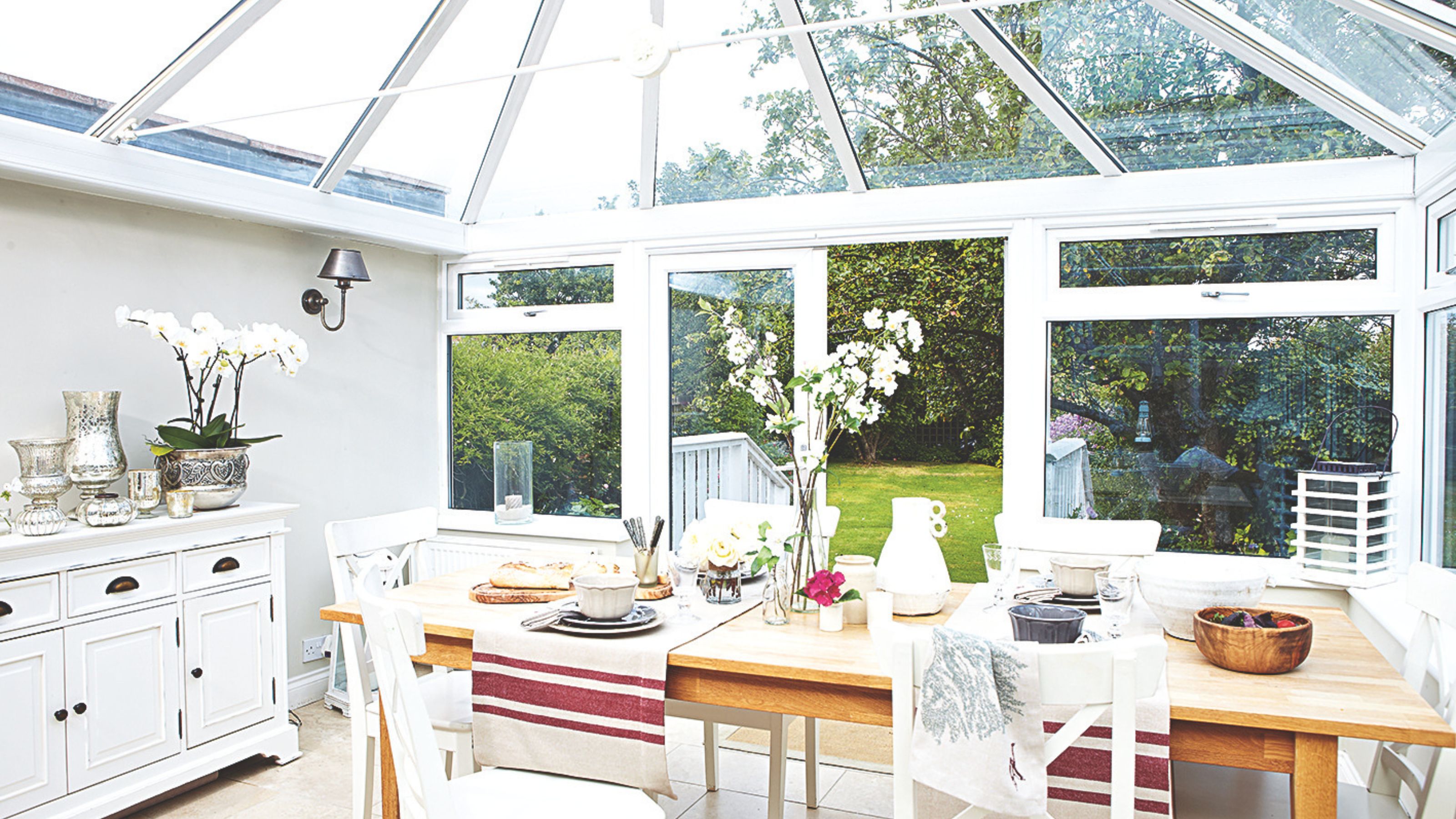

A new conservatory can provide a spacious, sun-soaked addition to your home, creating the perfect spot to enjoy garden views. But with rumours have been circulating that conservatories are set to be banned, does this put an end to your plans?
If you're keen on adding a conservatory, whether you want a traditional, Victorian-inspired structure, or a sleek, modern addition, you can rest assured that you will be able to go ahead.
We separate fact from fiction by addressing where the rumour of a ban came from, as well as explaining how recent changes to regulatory requirements might affect your project.
Are conservatories going to be banned in the UK?
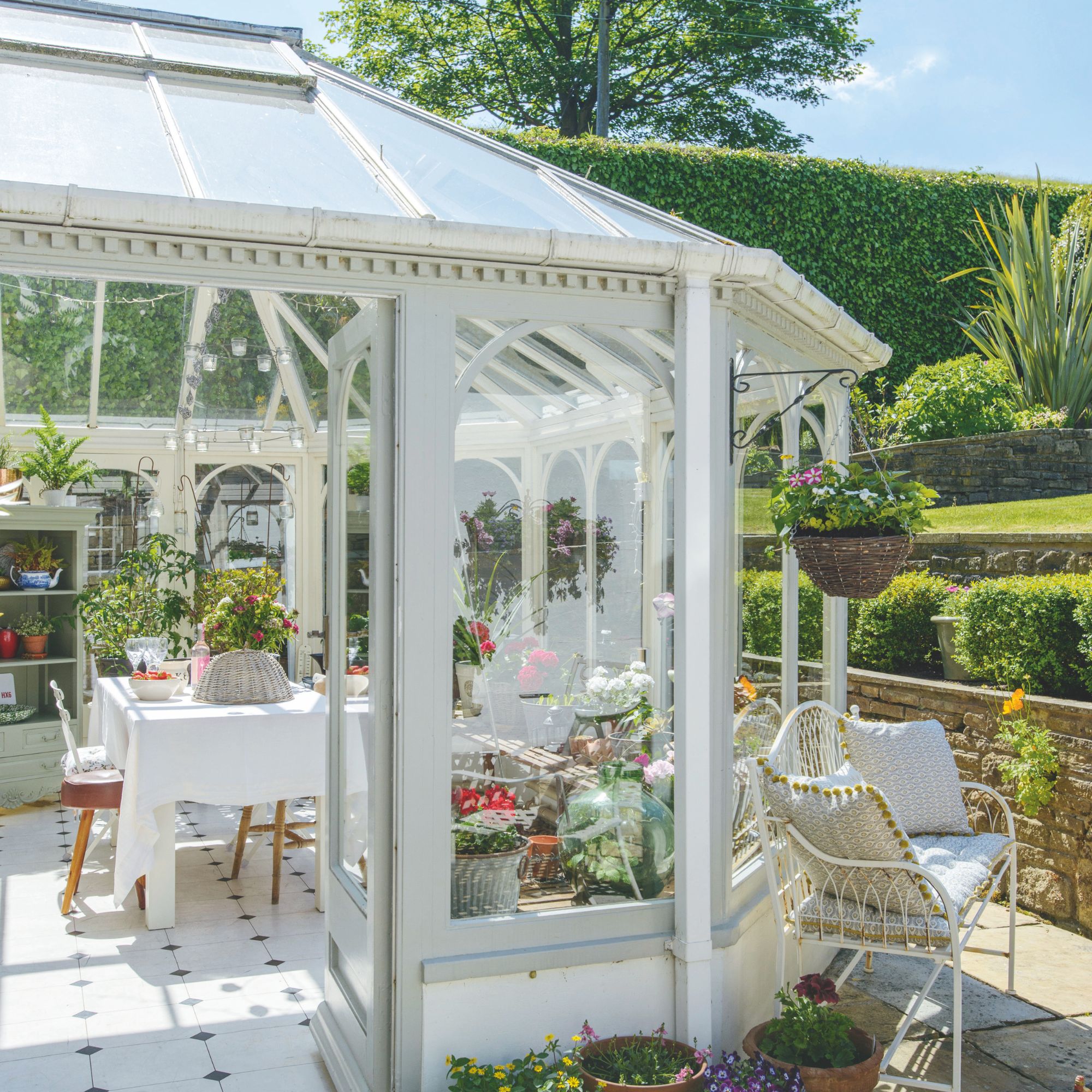
Before we delve into the details of where this rumour came from, let’s get one thing straight: conservatories are not going to be banned in the UK. So, where exactly did the rumour start – and why?
One thing that’s made it easier for homeowners to construct conservatories over the years is that providing your structure adheres to certain stipulations, it’s actually exempt from Building Regulations that apply to other types of extensions. To fall into this bracket, the conservatory should be less than 30m2 in size, have a glass roof and over 50% glass/translucent plastic in its sides. It should also be thermally separated from the rest of the house.
In June 2022, Building Regulations were updated to help limit excessive solar gain that leads to the build-up of too much heat inside new build homes. 'These state that conservatories on new builds can only be added if it’s proven they won’t create ‘unwanted solar gain’ – the excessive build-up of heat inside a property due to sunlight,' says Rachael Munby from Anglian Home Improvements.

Rachael champions innovation and quality in doors, windows and conservatories. Under her direction, Anglian upholds its reputation as the home improvement leader, blending rigorous standards with pioneering products. She drives the company’s proud commitment to British manufacturing and exceptional customer satisfaction.

According to Rachael, while this tightening of Building Regs might sound concerning, it’s actually a positive move towards houses that are more comfortable and thermally efficient.
Get the Ideal Home Newsletter
Sign up to our newsletter for style and decor inspiration, house makeovers, project advice and more.
The changes to the Regs stipulate that conservatories added to new build homes in England and Wales need to be more sustainable in the way they use construction materials. They also need to be built to a high standard based on the intention of using them for at least 10 years.
Sharon Wright from DHW Joinery also shared her insight on the changes to Building Regs, and why they seem to have caused such confusion about the construction of new conservatories in the UK. 'While recent regulations have introduced specific requirements to ensure energy efficiency and prevent overheating, conservatories are not banned,' she says.
It’s important to note that the restrictions vary between new homes and existing ones, which is why it’s well worth seeking the advice of a conservatory specialist when planning your project.
'The rumour arose in 2022 after UK media coverage, in particular on a popular morning television chat show, discussing the hypothetical topic of whether there should be a ban on conservatories,' says Sharon. 'When new rules were introduced in June 2022 there was a lot of misunderstanding about the new regulations, which led to further confusion and further coverage from two major UK new outlets about hypothetical impacts on window and conservatory limitations.' Updates to these rules in 2024 have since exacerbated confusion.

Sharon is one half of the founding partners of the business that was established in 1989. Sharon has a rich heritage being a leading female business owner in the male-dominated joinery industry. Sharon has a fantastic eye for building beautiful conservatories and takes the lead within the business when it comes to design of the stunning projects that pass her desk.
What are the most recent rule changes when it comes to conservatories?
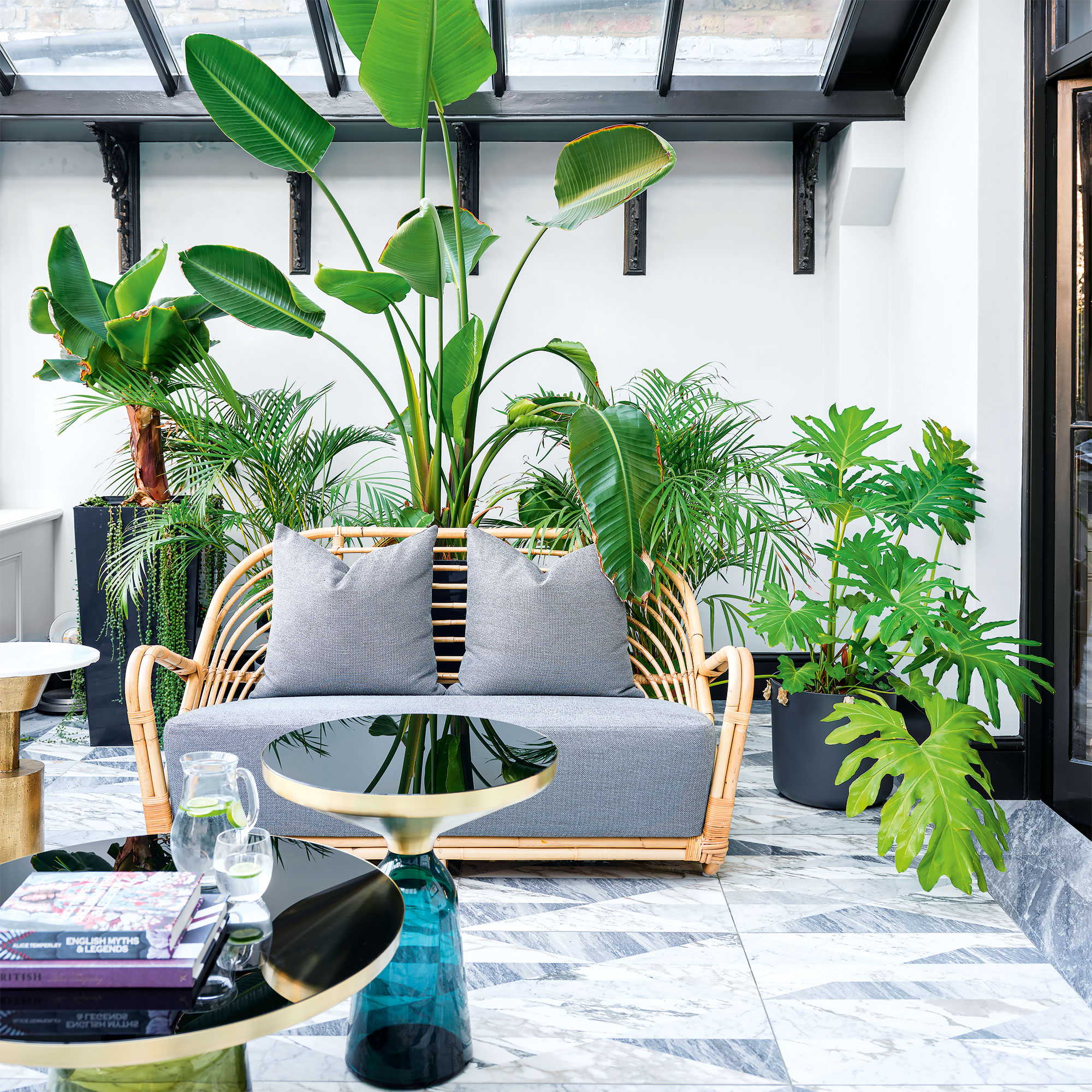
Updates to Building Regulations in 2024 focused primarily on making conservatories better for the environment, ensuring they’re more thermally efficient, better insulated and more sustainable in the materials they’re built from.
'Also, the previous four-year rule was replaced with a ten-year rule meaning that the new conservatory will need to demonstrate a minimum of ten years of continued purpose rather than four,' says Sharon. 'Essentially, they need to be built better to last for longer.'
Post June 2022, conservatories cannot be added to new build properties unless it can be demonstrated they won’t cause excessive solar gain. If this was a risk factor, you’d have to demonstrate you’d employed some sort of strategy (eg energy efficient glazing and a ventilation system) to negate the possible effects of excessive solar gain.
There are also new rules that limit window sizes relative to floor area. 'This potentially reduces the inclusion of large conservatories, patio doors and expansive windows in new homes,' says Sharon.
Conservatories added to existing properties are exempt from Building Regs if they cover an area less than 30m2, are built at ground level and separated from the rest of the house by external-quality walls, doors or windows.
'Roofs on new conservatories must have a U-value [a measure of thermal performance, where lower numbers are better] not exceeding 0.15W/m2K, while refurbished roofs should not exceed 0.16 W/m2K,' says Sharon.
Does that mean conservatories are going out of fashion?
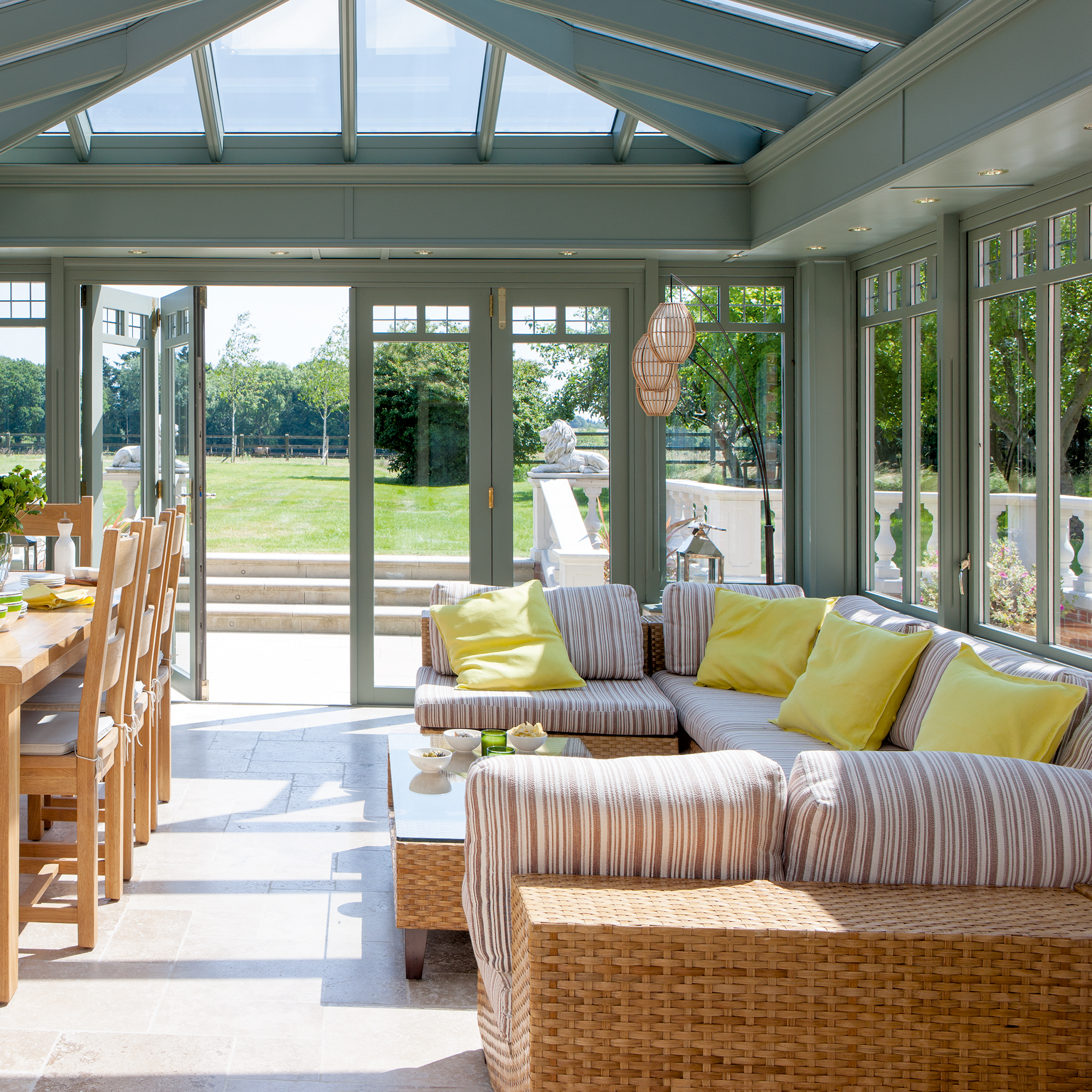
The recent changes to the rules around building conservatories don’t mean this type of glazed extension is going out of style. In fact, adhering to the new guidelines will not only increase the internal comfort level inside your conservatory, but also boost its sustainability points (ie if you’re using high-quality and responsibly sourced construction materials to build your new structure).
According to Virginia Murray from Mozolowski & Murray, the latest updates are aimed at thermally inefficient, mass-produced conservatories that contribute to overheating and heat loss. 'The misconception comes from concerns about mass-produced, poorly insulated conservatories, which often require costly upgrades to meet compliance,' she explains. 'By contrast, our handcrafted hardwood conservatories are custom engineered for insulation, durability and energy efficiency, future proofing against any regulatory changes.'
Conservatories still have numerous advantages. As well as adding extra living space to your home, a well-designed addition could increase the property’s total value by providing a sought-after, light-filled space. This type of glass extension is versatile, too, as it can be used as a living, dining or play area.

For over 30 years, Virginia has played a pivotal role in shaping the company’s reputation and growth in the bespoke construction industry. Her leadership has focused on promoting high-performance, sustainable glass and hardwood structures, delivering luxury, energy-efficient solutions across Scotland and Northern England.
FAQs
What can you do instead if you are worried about solar gain from a conservatory?
If excessive solar gain is still a concern, there are various steps you can take to alleviate this potential issue and how it might contribute to overheating – while still achieving a beautiful glazed addition to your home.
One option is to use solar control glass for the roof of your new structure to maintain natural light levels without causing interior temperatures to rise. 'On average, a conservatory roof gets 68% of the sun’s energy. Anglian’s Solaroof can block out 75% of solar heat to keep your conservatory from getting too hot, so you stay at a comfortable temperature,' says Rachael.
'It also helps reduce solar glare by up to 80%, allowing you to sit comfortably without being disturbed by the sun’s rays,' adds Rachael.
You might decide to take an alternative route entirely, creating a different type of glazed extension that still ticks all the boxes on your project brief. 'Orangeries offer a more traditional design combining a part solid roof with a glazed cupola for better temperature regulation,' says Virginia from Mozolowski & Murray.
'Sun lounges and garden rooms are fully insulated, often with a more modern design with high levels of glazing, providing multi-purpose, year-round use,' adds Virginia.
We've broken down the key differences between conservatories and orangeries so you can decide which is the better option for your home.

Rebecca Foster started her journalism career in Bangkok in 2013, where she worked on the in-house editorial team at a luxury homes magazine. Since then, Rebecca has contributed to numerous property and interiors titles in the UK and Southeast Asia. She re-located to London in 2015 to work at one of the country’s leading self-build and home renovation magazines. In 2017, she left her job to split her time between freelance journalism and teaching yoga.
You must confirm your public display name before commenting
Please logout and then login again, you will then be prompted to enter your display name.
-
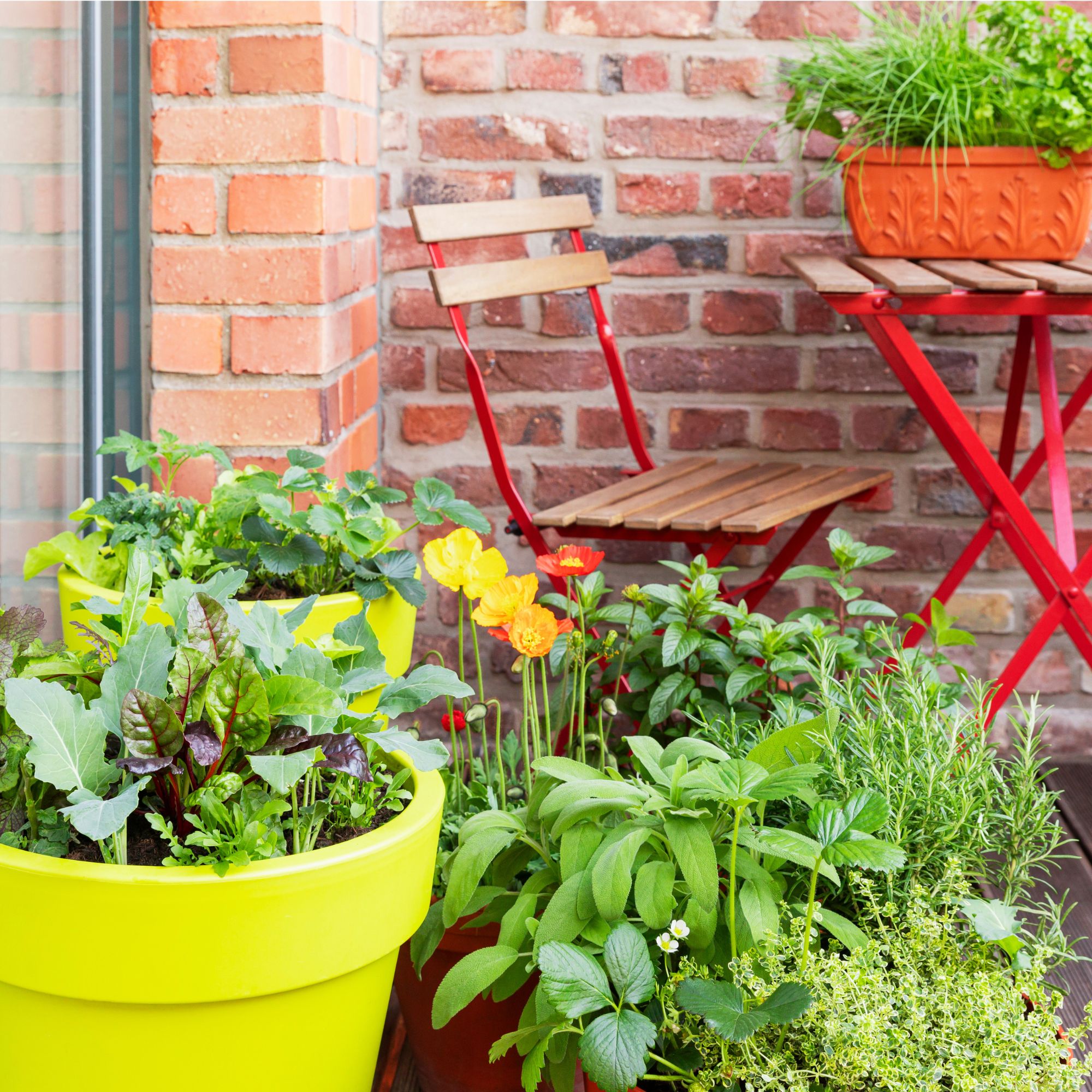 The herbs you should plant together for an easy-care herb garden – 6 expert-recommended combinations
The herbs you should plant together for an easy-care herb garden – 6 expert-recommended combinationsMake this year's herb garden effortless
By Sophie King
-
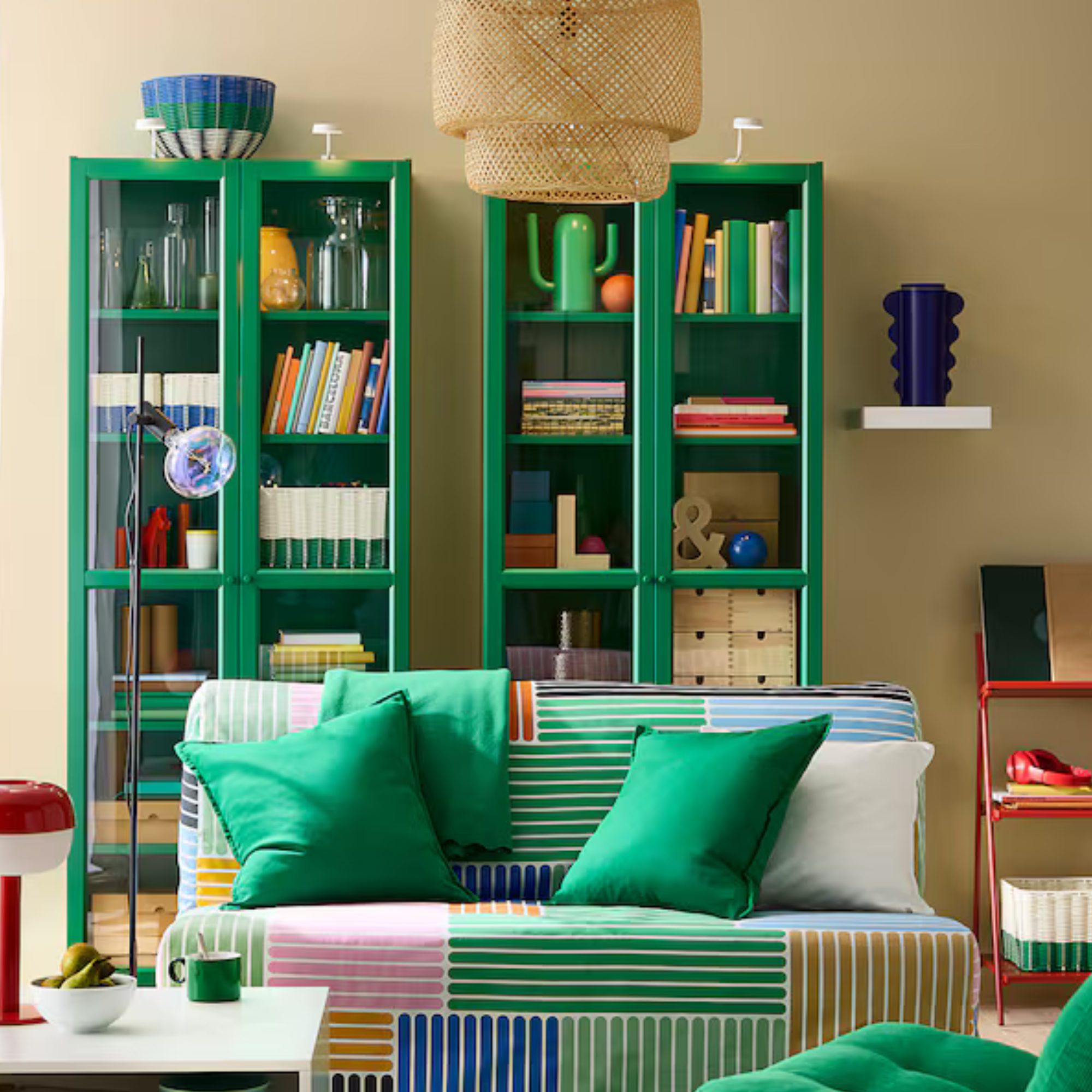 IKEA has drenched its BILLY bookcase in this year’s ‘it’ colour - but you’ll have to act fast if you want to get your hands on one
IKEA has drenched its BILLY bookcase in this year’s ‘it’ colour - but you’ll have to act fast if you want to get your hands on oneI'm obsessed with this gorgeous limited-edition colourway
By Kezia Reynolds
-
 My go-to Ninja coffee machine is on sale for Easter weekend
My go-to Ninja coffee machine is on sale for Easter weekendIt makes coffee shop quality achievable at home
By Molly Cleary